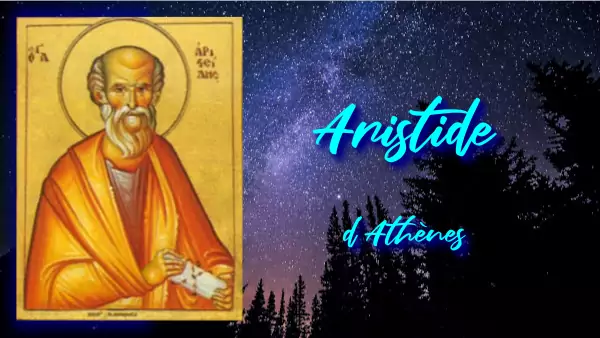August 31 - Aristide of Athens is a Christian apologist of the first century. An Athenian philosopher, he converted to Christianity and was one of the first to respond with his pen to the attacks on the Christian religion at the beginning of the 2nd century.
Preceding other apologists (such as Saint Justin or Tertullian) who developed and deepened the defense and illustration of Christianity, Aristide testifies by his freshness and sincerity to the spirit of fraternity that reigned within the first Christian communities.
While Aristide taught philosophy in Athens, Emperor Hadrian visited the city in 125. Aristide presented him with an Apology of Religion which was well received. In a speech to the emperor, he supported the principle of the divinity of Jesus Christ.
In his speech, Aristide begins by dividing humanity into four categories: Barbarians, Greeks, Jews and Christians: Aristide believes that these are the ones who have "come closest to the truth and exact knowledge". He appreciates: their righteousness, their restraint, their sense of brotherhood ("There is no lie among them and they love one another"), their charity ("They do not avert the eyes of widows and they deliver the orphan from him who does violence to them. He who possesses gives without reserve to him who does not possess"), their piety ("Every morning and at all hours, they praise and glorify God for his graces towards them").
At the end of these observations, Aristide invites the "slanderers" to remain silent and the emperor to discover the Christian doctrine. It is probable that this Apology and this discourse had an influence on the edict that was issued shortly afterwards by the emperor, forbidding the execution of suspects without prior indictment and judgment, which allowed Christians to practice their religion in relative calm.








